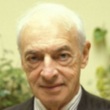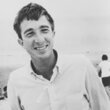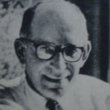The plot against America
Description
More Details
9781504693684
9780547345314
Excerpt
Similar Titles From NoveList
Similar Authors From NoveList
Published Reviews
Booklist Review
In his new novel, Roth steps boldly into the difficult realm of alternate history. As he has it, aviation hero Charles Lindbergh is nominated for president in 1940 on a peace-with-Hitler platform and wins handily over FDR--the majority of the electorate fearing that Roosevelt intends to propel the country into the war currently raging in Europe. Of course, a large segment of American Jewry is frightened at the advent of Lindbergh into the White House; his friendship with the fuhrer could easily include acceptance or even adoption of the German dictator's anti-Semitic policies. Roth brings this provocative national situation down to a personal level by drawing the reader into the lives of the young narrator--called Philip Roth--and his Jewish family in Newark, New Jersey. How the Lindbergh presidency divides the family, since each member must determine the response sensible for a Jewish family to take, is the specific focus. In particular, Roth isolates young Philip's reaction when his immediate world is plunged into turmoil he both understands and doesn't quite understand. There are occasional breaches in the what-if conceit, from which escape faint whiffs of gimmick, but the overall effect of the novel is staggering. Roth has constructed a brilliantly telling and disturbing historical prism by which to refract the American psyche as it pertains to war--the central question always being, Do we protect humanity beyond our borders and see our soldiers come home in body bags? This magnificent novel is both appropriate to today's headlines and timeless for its undermining of the blind sentiment that it can't happen here. --Brad Hooper Copyright 2004 Booklist
Publisher's Weekly Review
During his long career, Roth has shown himself a master at creating fictional doppelgangers. In this stunning novel, he creates a mesmerizing alternate world as well, in which Charles A. Lindbergh defeats FDR in the 1940 presidential election, and Philip, his parents and his brother weather the storm in Newark, N.J. Incorporating Lindbergh's actual radio address in which he accused the British and the Jews of trying to force America into a foreign war, Roth builds an eerily logical narrative that shows how isolationists in and out of government, emboldened by Lindbergh's blatant anti-Semitism (he invites von Rippentrop to the White House, etc.), enact new laws and create an atmosphere of religious hatred that culminates in nationwide pogroms. Historical figures such as Walter Winchell, Fiorello La Guardia and Henry Ford inhabit this chillingly plausible fiction, which is as suspenseful as the best thrillers and illustrates how easily people can be persuaded by self-interest to abandon morality. The novel is, in addition, a moving family drama, in which Philip's fiercely ethical father, Herman, finds himself unable to protect his loved ones, and a family schism develops between those who understand the eventual outcome of Lindbergh's policies and those who are co-opted into abetting their own potential destruction. Many episodes are touching and hilarious: young Philip experiences the usual fears and misapprehensions of a pre-adolescent; locks himself into a neighbor's bathroom; gets into dangerous mischief with a friend; watches his cousin masturbating with no comprehension of the act. In the balance of personal, domestic and national events, the novel is one of Roth's most deft creations, and if the lollapalooza of an ending is bizarre with its revisionist theory about the motives behind Lindbergh's anti-Semitism, it's the subtext about what can happen when government limits religious liberties in the name of the national interest that gives the novel moral authority. Roth's writing has never been so direct and accessible while retaining its stylistic precision and acute insights into human foibles and follies. (Oct. 5) Forecast: With its intriguing premise and thriller-tense plot, it's likely that this novel will broaden Roth's readership while instigating provocative debate. (c) Copyright PWxyz, LLC. All rights reserved
School Library Journal Review
Adult/High School-When Charles Lindbergh, Republican candidate in the 1940 presidential race, defeats popular FDR in a landslide, pollsters scramble for explanations-among them that, to a country weary of crisis and fearful of becoming involved in another European war, the aviator represents "normalcy raised to heroic proportions." For the Roth family, however, the situation is anything but normal, and heroism has a different meaning. As the anti-Semitic new president cozies up to the Third Reich, right-wing activists throughout the nation seize the moment. Most citizens, enamored of isolationism and lost in hero worship, see no evil-but in the Roths' once secure and stable Jewish neighborhood in New Jersey, the world is descending into a nightmare of confusion, fear, and unpredictability. The young narrator, Phil, views the developing crisis through the lens of his family life and his own boyish concerns. His father, clinging tenaciously to his trust in America, loses his confidence painfully and incrementally. His mother tries to shield the children from her own growing fear. An aunt, brother, and cousin respond in different ways, and the family is divided. But though the situation is grim, this is not a despairing tale; suspenseful, poignant, and often humorous, it engages readers in many ways. It prompts them to consider the nature of history, present times, and possible futures, and can lead to good discussions among thoughtful readers and teachers. Bibliographic sources, notes on historical figures, and documentation are included.-Christine C. Menefee, Fairfax County Public Library, VA (c) Copyright 2010. Library Journals LLC, a wholly owned subsidiary of Media Source, Inc. No redistribution permitted.
Library Journal Review
Roth's look at how America would have been different had Charles A. Lindbergh been elected president in 1940 succeeds on several levels: as alternative history, as an examination of American anti-Semitism, and as a tale of growing up during this period. Using himself and his family as protagonists is a masterstroke, rendering a cautionary fantasy more realistic and immediate. The national events hit home when nine-year-old Philip's aunt marries a rabbi who becomes a spokesman for Lindbergh's policies and when the family faces relocation because of them. The author wonderfully balances politics and a boy's view of a seemingly idyllic America shattered by forces he cannot truly understand. Ron Silver is at his best when interpreting young Philip's efforts to be a typical American boy while all aspects of his life are disrupted. Without any of the condescension some readers employ with child characters, Silver embodies the boy's innocence and confusion. Highly recommended for all collections.-Michael Adams, CUNY Graduate Ctr. (c) Copyright 2010. Library Journals LLC, a wholly owned subsidiary of Media Source, Inc. No redistribution permitted.
Kirkus Book Review
A politically charged alternate history in which Aryan supremacist hero Charles Lindbergh unseats FDR in 1940--with catastrophic consequences for America's Jews. Roth's latest (and one of his most audacious) is narrated by a fictional character named Philip Roth, who describes the impact of Lindbergh's presidency (linked ominously to "Lindy's" cordial relationship with fellow statesman Adolf Hitler) on Newark insurance salesman Herman Roth, his stoical wife Bess, and their sons Philip and Sanford ("Sandy"). Novelist Roth skillfully constructs a thickly detailed panorama of urban Jewish life, featuring such vividly developed characters as Philip's truculent cousin Alvin (wounded in a "Jewish" European war, and permanently damaged), his suggestible maternal aunt Evelyn (who adores Lindbergh), and Evelyn's influential fiancÉ, silver-tongued conservative apologist Rabbi Lionel Bengelsdorf. The latter two pay dearly for their naively placed allegiances. But so do the passionately skeptical Roths: first, when Sandy's summer on a Kentucky farm imbues him with "American" (in fact anti-Semitic) values; and later, following the 1942 Homestead Act, purportedly conceived to relocate eastern seaboard Jews throughout Middle America, actually an ominous harbinger of how Lindbergh plans to solve "the Jewish problem." The tight focus on the Roths itself shifts when Lindbergh-hating columnist Walter Winchell announces his presidential candidacy, violence escalates alarmingly, martial law is imposed, war with Canada (whence many Jewish families flee) is anticipated, and a savagely ironic turn of events returns FDR to the national spotlight--but doesn't assuage Herman Roth's all-too-justifiable fears. The story gathers breakneck velocity and intensity, ending perhaps too abruptly (and, perhaps, pointing the way to a sequel). But hilarious and terrifying by turns, it's a sumptuous interweaving of narrative, characterization, speculation, and argument that joins The Ghost Writer (1979) and Operation Shylock (1993) at the summit of Roth's achievement. An almost unbelievably rich book, and another likely major prizewinner. Copyright ©Kirkus Reviews, used with permission.
Booklist Reviews
/*Starred Review*/ In his new novel, Roth steps boldly into the difficult realm of alternate history. As he has it, aviation hero Charles Lindbergh is nominated for president in 1940 on a peace-with-Hitler platform and wins handily over FDR--the majority of the electorate fearing that Roosevelt intends to propel the country into the war currently raging in Europe. Of course, a large segment of American Jewry is frightened at the advent of Lindbergh into the White House; his friendship with the fuhrer could easily include acceptance or even adoption of the German dictator's anti-Semitic policies. Roth brings this provocative national situation down to a personal level by drawing the reader into the lives of the young narrator--called Philip Roth--and his Jewish family in Newark, New Jersey. How the Lindbergh presidency divides the family, since each member must "determine the response sensible for a Jewish family to take," is the specific focus. In particular, Roth isolates young Philip's reaction when his immediate world is plunged into turmoil he both understands and doesn't quite understand. There are occasional breaches in the "what-if" conceit, from which escape faint whiffs of gimmick, but the overall effect of the novel is staggering. Roth has constructed a brilliantly telling and disturbing historical prism by which to refract the American psyche as it pertains to war--the central question always being, Do we protect humanity beyond our borders and see our soldiers come home in body bags? This magnificent novel is both appropriate to today's headlines and timeless for its undermining of the blind sentiment that "it can't happen here." ((Reviewed August 2004)) Copyright 2004 Booklist Reviews.
Library Journal Reviews
Asks a big "What if?"--what if America had stayed out of World War II and famed aviator Charles ("Lucky Lindy") Lindbergh, an isolationist and known Hitler admirer, had been elected President? In leading the nation, Lindbergh sets forth a wave of anti-Semitism that culminates in the creation of holding farms where Jews are herded for their own safety under the authority of the government's "Office of American Absorption." As a reimagining of the wrong men at the wrong time, Roth's take on alternative history is crafted with chilling plausibility. A novel of fear and fearful possibility that will stir book group debates. Copyright 2008 Reed Business Information.
Library Journal Reviews
Alternative reality at its most chilling: Charles Lindbergh defeats FDR in the 1940 presidential election and seeks accommodation with Hitler, even as the Roth family (and millions of other American Jews) watch anxiously from the sidelines. Copyright 2004 Reed Business Information.
Library Journal Reviews
June 1940. In the Newark, NJ, household of a young Jewish boy named Philip Roth, the anxiety is palpable: Lindbergh has been nominated for the presidency. What's more, the traitorous Rabbi Bengelsdorf has thrown his support to the air hero, arguing that the war against Hitler is Europe's war. In due course, Lindbergh is elected; Philip's cousin, Alvin, goes to Canada so that he can join the fight against Hitler (returning an embittered amputee); Philip's brother, Sandy, dazzled by Lindbergh, joins the Just Folks program, which purports to bring urban youth to the heartland but is clearly the first of several steps toward the destruction of the Jewish community; and America signs a nonaggression pact with Germany. This may be alternative history, but it is chillingly and convincingly realistic in its portrayal. The reader watches, horrified yet totally absorbed, as America spirals down the path toward fascism. Perhaps the last-minute rescue and explanation for Lindbergh's stance seems a bit far-fetched, but otherwise this is a remarkable achievement. Highly recommended. [See Prepub Alert, LJ 6/15/04.] Barbara Hoffert, Library Journal Copyright 2004 Reed Business Information.
Publishers Weekly Reviews
During his long career, Roth has shown himself a master at creating fictional doppelgangers. In this stunning novel, he creates a mesmerizing alternate world as well, in which Charles A. Lindbergh defeats FDR in the 1940 presidential election, and Philip, his parents and his brother weather the storm in Newark, N.J. Incorporating Lindbergh's actual radio address in which he accused the British and the Jews of trying to force America into a foreign war, Roth builds an eerily logical narrative that shows how isolationists in and out of government, emboldened by Lindbergh's blatant anti-Semitism (he invites von Rippentrop to the White House, etc.), enact new laws and create an atmosphere of religious hatred that culminates in nationwide pogroms. Historical figures such as Walter Winchell, Fiorello La Guardia and Henry Ford inhabit this chillingly plausible fiction, which is as suspenseful as the best thrillers and illustrates how easily people can be persuaded by self-interest to abandon morality. The novel is, in addition, a moving family drama, in which Philip's fiercely ethical father, Herman, finds himself unable to protect his loved ones, and a family schism develops between those who understand the eventual outcome of Lindbergh's policies and those who are co-opted into abetting their own potential destruction. Many episodes are touching and hilarious: young Philip experiences the usual fears and misapprehensions of a pre-adolescent; locks himself into a neighbor's bathroom; gets into dangerous mischief with a friend; watches his cousin masturbating with no comprehension of the act. In the balance of personal, domestic and national events, the novel is one of Roth's most deft creations, and if the lollapalooza of an ending is bizarre with its revisionist theory about the motives behind Lindbergh's anti-Semitism, it's the subtext about what can happen when government limits religious liberties in the name of the national interest that gives the novel moral authority. Roth's writing has never been so direct and accessible while retaining its stylistic precision and acute insights into human foibles and follies. (Oct. 5) Forecast: With its intriguing premise and thriller-tense plot, it's likely that this novel will broaden Roth's readership while instigating provocative debate. Copyright 2004 Reed Business Information.
School Library Journal Reviews
Adult/High School-When Charles Lindbergh, Republican candidate in the 1940 presidential race, defeats popular FDR in a landslide, pollsters scramble for explanations-among them that, to a country weary of crisis and fearful of becoming involved in another European war, the aviator represents "normalcy raised to heroic proportions." For the Roth family, however, the situation is anything but normal, and heroism has a different meaning. As the anti-Semitic new president cozies up to the Third Reich, right-wing activists throughout the nation seize the moment. Most citizens, enamored of isolationism and lost in hero worship, see no evil-but in the Roths' once secure and stable Jewish neighborhood in New Jersey, the world is descending into a nightmare of confusion, fear, and unpredictability. The young narrator, Phil, views the developing crisis through the lens of his family life and his own boyish concerns. His father, clinging tenaciously to his trust in America, loses his confidence painfully and incrementally. His mother tries to shield the children from her own growing fear. An aunt, brother, and cousin respond in different ways, and the family is divided. But though the situation is grim, this is not a despairing tale; suspenseful, poignant, and often humorous, it engages readers in many ways. It prompts them to consider the nature of history, present times, and possible futures, and can lead to good discussions among thoughtful readers and teachers. Bibliographic sources, notes on historical figures, and documentation are included.-Christine C. Menefee, Fairfax County Public Library, VA Copyright 2004 Reed Business Information.
































